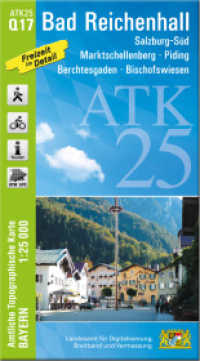Full Description
How is every child doing in your setting? Do all children get the necessary warmth, light, and care that they need? Do we leave some children out in the cold?
Excellent practice with children of any age and within any educational context is dependent on our environment, policies and procedures working in an effective way to help each child thrive. This fully revised new edition introduces the Process-Oriented Monitoring System (POMS), which allows practitioners to assess children's wellbeing and involvement and identify those needing more support.
Taking a strengths-based approach, the POMS provides practitioners with a reliable and inclusive compass to tailor their practice to the profile of each individual child and create optimal conditions for their development. Within the book, the authors:
Present a clear, experiential framework for evaluating children's wellbeing and involvement, with optional scales and guidelines for collecting data.
Encourage educators to use their observations of the group, as well as partnership work with parents, to build a holistic profile of the whole child.
Provide guidance on using profiles to tailor practice to each child's needs to help them fulfil their potential and enable deeper learning for all.
Integrate key areas of competence into ten developmental domains, from fine motor development to understanding of the social world.
Contain all the forms required to effectively carry out the POMS.
With a wealth of case examples, this empowering book is an invaluable resource for all early years educators working with children who want to improve each child's wellbeing and involvement both in their setting and at home.
Contents
Preface
1. The framework
2. Wellbeing
3. Involvement
4. From screening to interventions: Miss Julia's story
5. How to carry out a group screening: [form 1]
6. Focus on the general approach: [form 2]
7. Focus on individual children: Opening a file and follow up [form 3 and 8]
8. Individual observations: Wellbeing in relations [form 4]
9. Individual observations: Involvement in activities [form 5]
10. Individual observations: Developmental domains [form 6]
11. Compiling the child's profile: [form 7]
12. Involving parents
13. Collection of forms: [forms 1-8]






